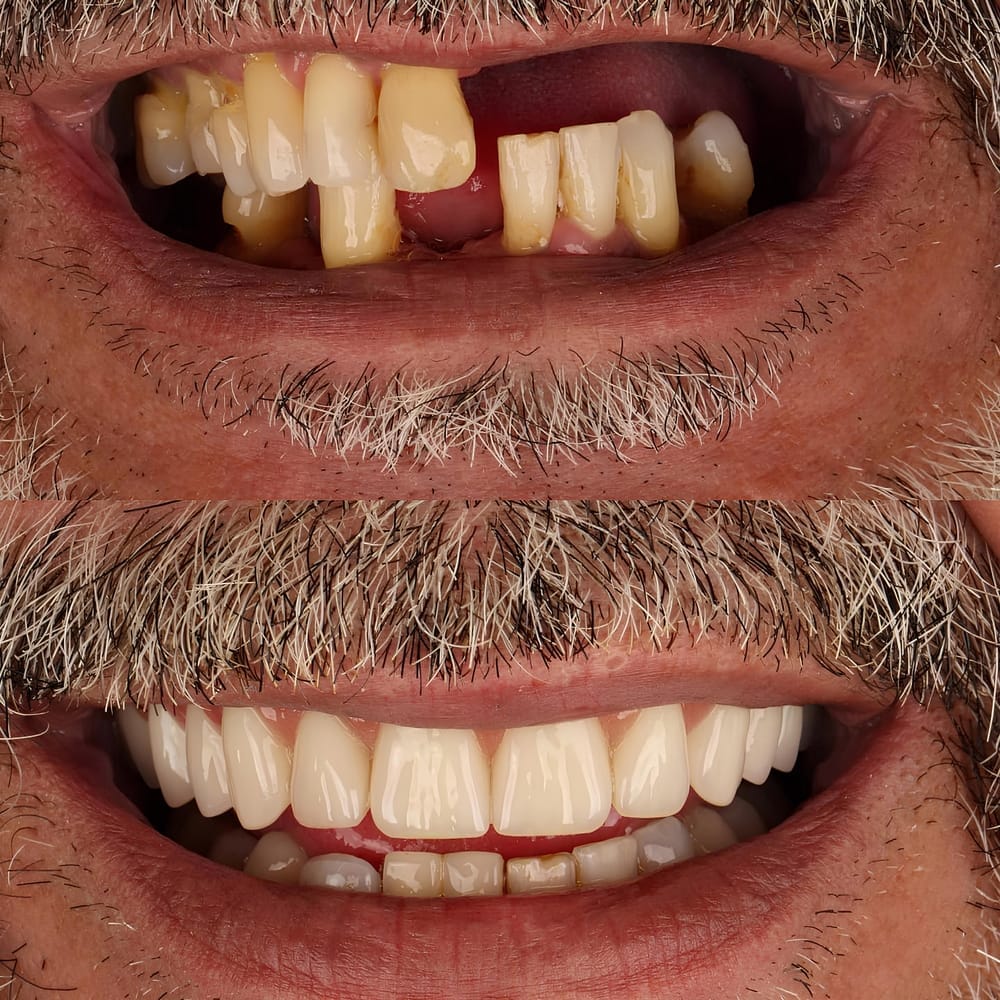 Missing teeth can impact your quality of life. While it may ruin your aesthetics, the more immediate problem lies in your ability to chew and consume foods, which may disrupt your diet and affect your health. So, what do you do about the missing teeth?
Missing teeth can impact your quality of life. While it may ruin your aesthetics, the more immediate problem lies in your ability to chew and consume foods, which may disrupt your diet and affect your health. So, what do you do about the missing teeth?
People usually go for one of these two options: dental implants or dentures. Each offers ways to restore function and aesthetics, but they represent distinctly different approaches. What are the core differences? Are there pros and cons to each? Find out the answers about which option can truly bring back your smile and confidence.
What Are Dentures?
Many people refer to dentures as “false teeth,” as their appearance resembles actual teeth. They’re actually removable appliances replacing missing teeth and surrounding tissues.
There are two types of dentures: full dentures, which replace all your teeth in an arch, or partial dentures, which only replace a few missing teeth. Full dentures generally rely on suction and adhesives to stay in place. Meanwhile, partial dentures use clasps to attach to existing teeth.
Dentures usually cost less than implants. They are also a non-surgical procedure to replace missing teeth, so they’re less invasive. Moreover, they can replace multiple or all missing teeth in a single arch.
However, there are plenty of disadvantages of dentures:
- Dentures can move or slip, which leads to discomfort.
- Dentures affect speech and chewing, especially in the beginning.
- Dentures require daily cleaning and the use of adhesives.
- Dentures may irritate the gums and cause sores.
Furthermore, dentures are known to cause jawbone loss over time as dentures rest on the gums. They don’t provide the stimulation that natural teeth roots or implants do to the jawbone. Dentures also require regular relining or replacement. To keep the dentures clean, reduce harmful oral bacteria, and keep your jawbones strong, it’s recommended to remove dentures at night.
What Are Dental Implants?
A more permanent solution for missing teeth is dental implants. They consist of three parts:
- A titanium post surgically placed into the jawbone
- A connector that bridges the post to the crown
- A custom-made crown looking and functioning like a natural tooth
The key to an implant’s stability is a process called osseointegration, in which the implant fuses with the jawbone. This process is not as painful as the initial dental implant placement, but some may still feel some discomfort.
The pros of dental implants are:
- Stability and security with excellent support for chewing and speaking
- Natural look and feel that enhance your smile
- Preservation of jawbone density with minimal bone loss
- Improved speech and chewing function
- Longevity with the potential to last a lifetime with proper care
However, dental implants are more expensive than dentures. As a procedure, it’s also more invasive as it requires surgery. The aftermath also takes longer as osseointegration takes several months. Implants are also limited to patients with strong enough bone density and good overall health, so not everyone can get them.
How to Choose Between Dental Implants and Dentures
When consulting your dental professional about which method works for you, you must consider the following:
- Health and bone density: Your overall health and jawbone condition will be examined to see which method is more viable.
- Number of missing teeth: The extent of your tooth loss will influence the recommended treatment.
- Desired level of comfort: Think about the comfort and stability you want for your teeth.
- Time commitment: Since implants require a longer treatment time than dentures, you may think twice about the procedure.
- Budget and cost: Your financial situation and insurance coverage will ultimately decide on your choice.
Conclusion
Patients seeking fast, affordable solutions with less invasive procedures may lean towards dentures. Meanwhile, those prioritizing long-term oral health, natural function, and esthetics, who also have excellent general health and enough bone density, may be better suited for dental implants.
Consulting a dental professional, like our dentists at the St. George dental clinic, can help you decide which option is the most suitable. They’ll perform a complete exam, take X-rays, and discuss your treatment goals. Visit our offices and get a professional assessment to treat missing teeth.



Leave a Reply